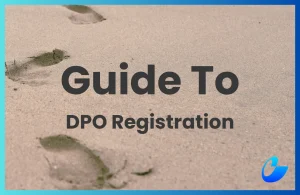In a world where decision-making tends to follow shareholding power, minority shareholders carry a disproportionate amount of risk.

As minority shareholders may include early team members who contribute just as much to the company’s growth, it is essential they are contractually protected beyond the default provisions of Malaysian company law.
Below, we share common risks faced by minority shareholders. and how they are mitigated by key clauses in the Shareholders’ Agreement.
Minority shareholder risks (+protections)
Here are risks we often highlight when reviewing a minority position, followed by a corresponding contractual clause to address it:
Lack of decision-making power
Minority shareholders often do not have enough voting power and may have no say in major business moves such as appointing directors, entering into transactions or issuing new shares.
Protection: Reserved matters / veto rights
Reserved matters specifies key business decisions that require shareholders’ unanimous consent or the approval of a minority-nominated director.
Ownership dilution
If the company issues new shares and there is no anti-dilution protection clause, the minority’s shareholding will be reduced. Should there be multiple fundraising rounds, the minority’s ownership and future returns are slashed each time.
Protection: Pre-emption rights (right of first refusal)
Pre-emption rights give existing shareholders the first opportunity to buy shares sold by other shareholders and subscribe to any new shares issued by the company, preventing unwanted dilution or entry of external parties without notice.
Restrictive exit options
Unlike public companies, shares in private companies are not publicly traded and buyers are generally harder to find to begin with, and the absence of proper exit mechanisms in the Shareholders’ Agreement can pose an added obstacle.
Protection: Buyback clause
A buyback clause can give the minority a way out, but only if the terms place a clear obligation on the majority shareholders to purchase their shares, usually upon certain trigger events (i.e., failure to meet an agreed exit plan or misconduct by the majority.)
Unwanted changes in shareholding
When influence is weak and protections are lacking, the minority may be left out when the majority sells their shares to a third party and leaves them with new controlling shareholders they did not agree to.
Protection: Tag-along rights
Tag along rights allow minority shareholders to join in a sale by the majority to a third party if the minority shareholders want to, ensuring they are not left behind and can exit on the same terms.
Negotiate terms from the beginning
It sounds obvious, but by the time a dispute arises, the lack of protection can be difficult to undo.
The time to secure a fair agreement is before it’s signed, such as during:
- early-stage fundraising rounds
- joint venture or partnership formations
- reorganisations or onboarding of new shareholders
In our experience, this is when minority shareholders have the strongest footing to negotiate their rights, be it as a co-founder, investor, or strategic partner.
Once equity is allocated and agreements signed, changing terms usually requires all shareholders to consent, making renegotiations practically unfeasible.
What if there’s an existing Shareholders’ Agreement?
Unless the company is willing to issue a revised Shareholders’ Agreement to replace the existing version, you will be required to sign a deed of adherence which binds you to the terms negotiated before your involvement.

The key is to make an informed decision, so carefully review the agreement and ensure you are comfortable with the rights and obligations before signing.
And, should you need help, we’re here to help you assess that position with clarity.










